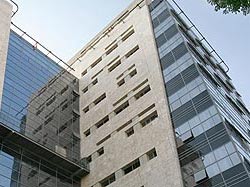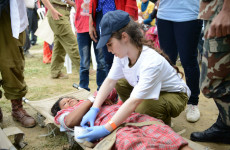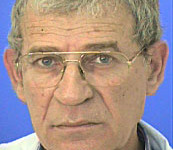
This week Bar-Ilan University will dedicate the Multidisciplinary Center for Advanced Materials and Nanotechnology. Just another festive occasion at an academic institution that spotlights, for a brief moment, the work of a group of researchers focused on a specific field of scientific endeavor. One more ceremony at which these researchers are showered with deserved praise, where proper thanks are expressed to donors who have provided us with another essential infrastructure for enriching human knowledge. But the new center’s unique characteristics also provide us with an opportunity to examine several important issues relevant to Israeli science in the 21st century.
First and foremost, this is another example of our “blue-and-white” potential to stand at the forefront of international innovative research. Nanotechnology – dealing with materials and phenomena at the nanometric level (that is, one-billionth of a meter) – is a young scientific realm that is developing at a dizzying pace. The concept itself was only coined in 1974, and major activity in the field was initiated less than 30 years ago, following the development of tools that allowed scientists to examine what was happening on such a minuscule dimension. Since then, there has been one breakthrough after another and their signs are clearly visible outside the laboratory and the professional literature.
Thanks to nanotechnology, revolutions are taking place to help direct drugs directly to the areas of the body where they are needed, to reduce friction in vehicles and significantly lower gasoline consumption, to increase by hundreds of percent our ability to utilize solar energy, to provide materials that can withstand different types of damage – in short, to change our lives in many positive ways. Israeli academia has successfully become part of this revolutionary effort, to the point where we are able to open this new center, which is one of the most advanced such facilities in the world.
This Is also a unique multidisciplinary center, which derives directly from the nature of nanotechnology and this type of cutting edge scientific research. Under a single roof, 40 research groups from various Bar-Ilan faculties will be able to work at the university. Each one of these groups will focus on a highly specific area of nanotechnology, yet all of them understand the need for an all-embracing perspective and mutual, productive work. Some of the groups deal with developing complex nanomaterials, such as nanotubes made out of carbon atoms. Others are looking at creating renewable energy sources, such as solar cells and miniature electrical batteries. There are those interested in nano-magnets (and designing new types of chips). Still others are devoted to medical issues (including advanced work on promising procedures for treating cancers).
This solid cooperation joins additional collaboration, which is one of the most important trademarks of nanotechnology. It seems there is no other scientific sphere where the distance between the basic laboratory research and industrial application is so short. This requires extensive assistance from industry for academia, and the question is how such assistance will be given and how we can ensure optimal coordination between the important involvement of those who “control the purse strings” and the no-less-important academic freedom of those who “control the knowledge.”
This also necessitates our ability to cross these borders wisely and create ample opportunity for international activity. Indeed, a considerable part of the work at the new center is carried out thanks to funding from outside sources, such as foundations from the EU and the US government – a fact that indicates their recognition of the outstanding quality of the researchers themselves.
Yet this outside funding helps us turn our attention inward. The new center contributes towards Israel’s national interest – among other things, by accepting returning scientists – but it is still awaiting proper national recognition. Construction of the center would not have happened without the generous contribution of the Friends of Bar-Ilan throughout the world in the midst of the global financial crisis.
But Israeli academia cannot get by solely on these contributions. The time has come to boost the importance of academic study by putting it higher on the national agenda, along with the budgetary expression it deserves.
By Moshe Kaveh, president of Bar-Ilan University. (from: jpost.com)




